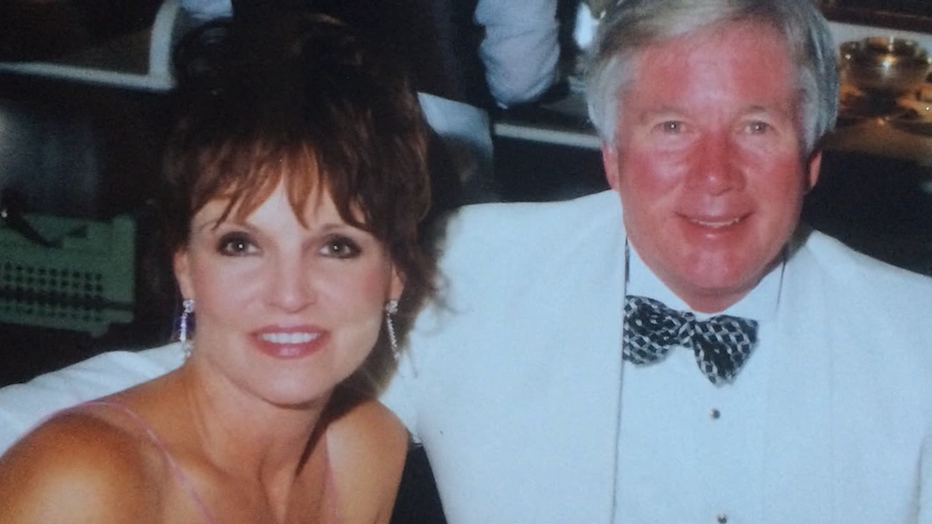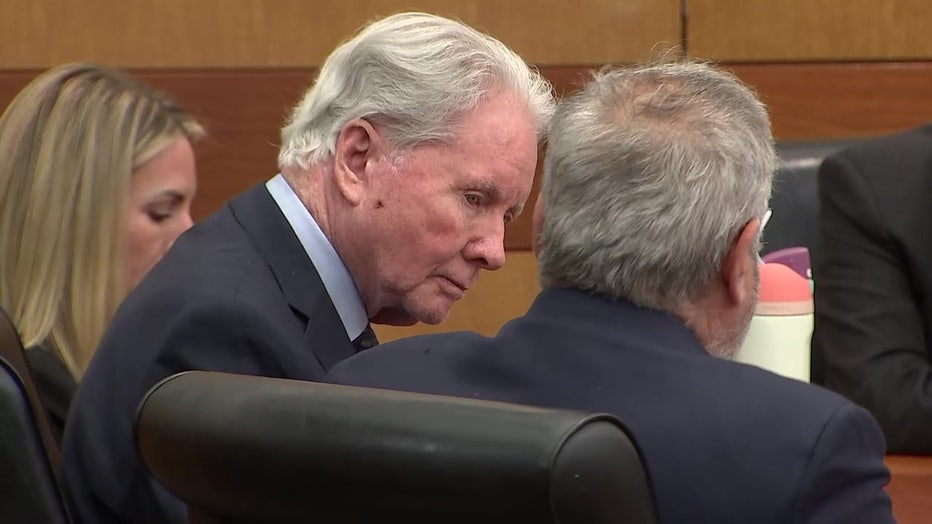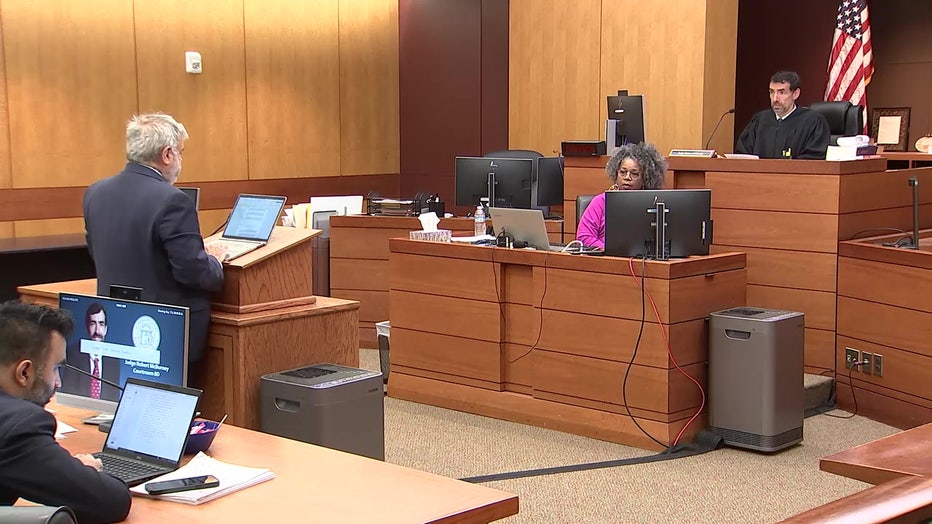Tex McIver: Retrial for Atlanta ex-attorney over wife's death delayed to 2024
2023 retrial for Tex McIver ends abruptly
The retrial of a former high-profile Atlanta attorney will have to wait until at least next year. Tex McIver, who was accused of killing his wife, Diane, back in 2016. Fulton County Superior Court Judge Robert McBurney abruptly ended the jury selection process in his 2023 retrial because evidence prosecutors planned to use has to be excluded moving forward.
ATLANTA - A Fulton County judge has put the retrial for a former prominent metro Atlanta attorney accused of murdering his wife on hold over an argument about what evidence can be shown to the jury.
"For technical legal reasons, we’re not going to need you as potential jurors," Fulton County Superior Court Judge Robert McBurney told jurors.
On Tuesday, Judge Robert McBurney told lawyers for the state and for 81-year-old Claud Lee "Tex" McIver III that he would be sending the potential jury members home and delaying the trial to let the prosecution appeal his decision in support of the defense.
In 2018, a Fulton County jury found McIver guilty of felony murder, aggravated assault, possession of a firearm during the commission of a felony, and influencing witnesses in connection with the death of his wife, Diane McIver. He was sentenced to life in prison.
On the night of Sept. 25, 2016, Dani Jo Carter, a close friend of Diane McIver, was driving the couple’s Ford Expedition as the three returned from a weekend at the McIvers’ horse farm about 75 miles east of Atlanta. Diane McIver was in the front passenger seat and Tex McIver was in the back seat behind his wife.

With traffic heavy on the interstate, Carter took an exit into Downtown Atlanta. McIver said, "Girls, I wish you hadn’t done this. This is a really bad area," and asked his wife to get his gun from the center console and hand it to him. A short while later, McIver fired the gun once, striking his wife in the back. Carter drove to a hospital where Diane McIver died.
There was never any dispute that McIver shot his wife — the question at trial was whether he meant to. Prosecutors said he was driven to kill her because he coveted his wife’s money. Defense attorneys said that was nonsense, that McIver loved his wife dearly and her death was a terrible accident after he had fallen asleep with the gun in his hand.
Tex McIver: Diane McIver's co-workers say they want "justice" after Georgia Supreme Court overturned murder conviction
Jay Grover, co-worker and friend of late Diane McIver, says he believes her death was not an accident and wants justice after the Georgia Supreme Court overturned Tex McIver's murder conviction.
In June 2022, the Supreme Court reversed McIver's convictions because they said the trial court "erred in denying his request to charge the jury on a lesser involuntary manslaughter offense."
Then-Presiding Justice Michael Boggs, who is now the court's chief justice, wrote in the unanimous opinion, "While the State’s evidence was sufficient to support the appellant’s conviction of murder, it also could have supported a finding that the appellant killed the victim without any intention of doing so in the commission of an unlawful act."
Though the high court overturned McIver's murder conviction, it upheld his conviction for influencing a witness.

Prosecutors are now charging McIver with aggravated assault, which has led to complications over what evidence could be shown to the jury during the retrial.
"Their motion is basically asking the court to declare irrelevant evidence that was gathered to show that this was an intent to kill," said Kevin Armstrong from the Fulton County District Attorney's Office.
"They can argue motive all they want, as to why he would want to shoot her," McIver's attorney Don Samuel said in court. "What they can't do, in part based on what the Supreme Court held and in part based on collateral estoppel, is [prove] that he intended to kill her."
McBurney agreed, saying that the state would need to remove any evidence, such as proceeds from Diane McIver's life insurance, that is connected to the alleged intent.
"I intend to include language that will empower both sides to argue the issue," the judge said.
The defense also asked to remove evidence about McIver's income or allegedly declining income that would show he would benefit from her death. The judge pushed back on this one, pointing out the power of attorney.
"I'm looking for things that are purely - the only way you would get it is if Mrs. McIver died," McBurney said.

"It follows logically from a ruling that the state cannot argue intent to kill, that the state would be prevented from entering evidence about life insurance because it's no longer relevant," the judge added.
After a quick discussion, McBurney said he would submit his ruling on Tuesday, and then put the trial on hold while the prosecution appealed to the Georgia Supreme Court.
"This is a major win for the defense," said Brian Mendelsohn, a longtime criminal defense attorney.
Prosecutors are expected to appeal the ruling, but Mendelsohn says it will be hard to get the Georgia Supreme Court to overturn it.
"With that financial motive out of the case, there's not a whole lot of evidence that the state has to prove intent to commit an aggravated assault, which is the basis for the felony murder charge," he said.
McBurney estimated that jury selection and the retrial would resume at some point in the middle or later 2024.
The Associated Press contributed to this report.

